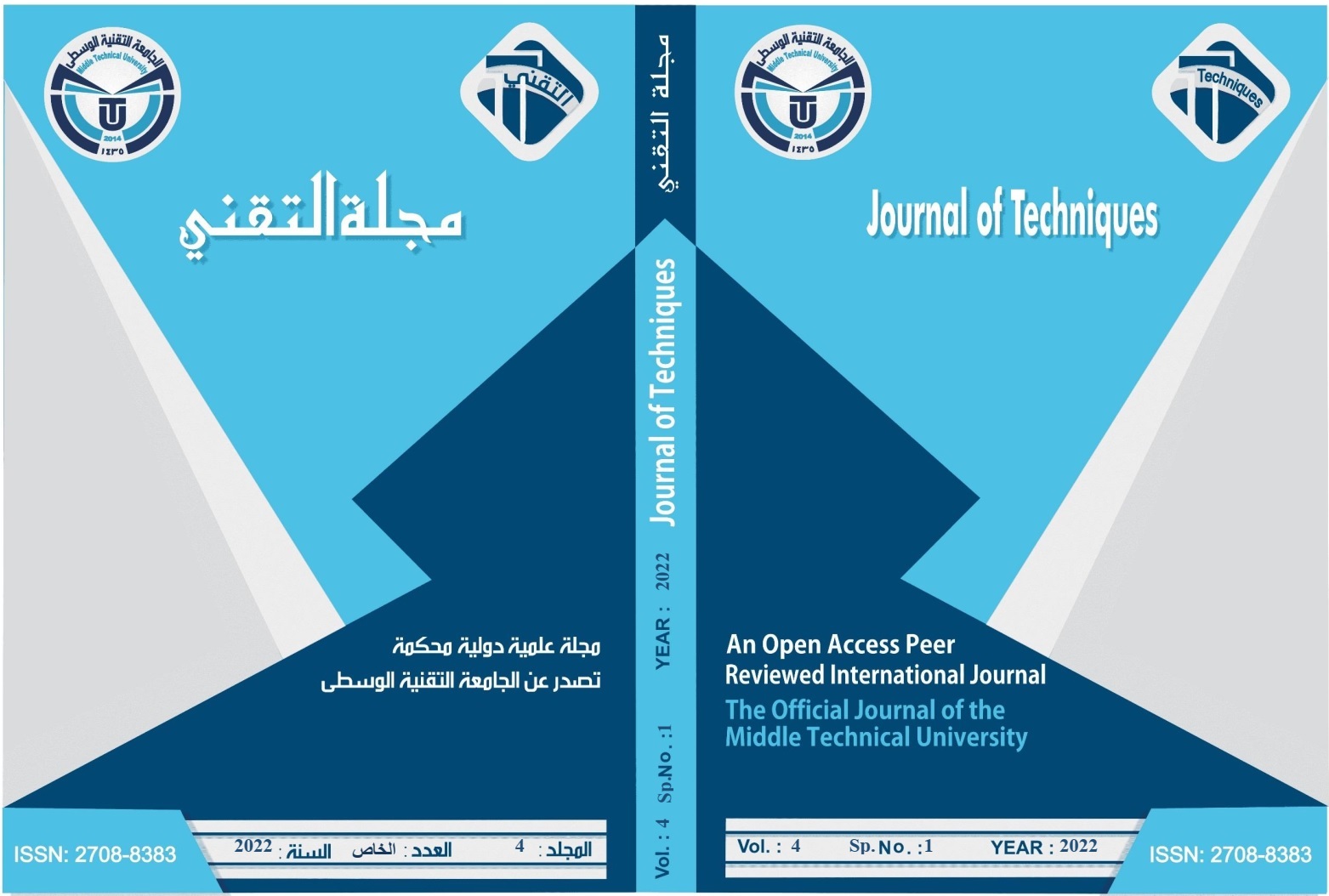Finite Element Modelling Based Studies for Dental Implants: Systematic Review
DOI:
https://doi.org/10.51173/jt.v4i33.771Keywords:
Finite element analysis, Dental Implant, Stress analysis, Stress distribution, Implant screwAbstract
Finite element analysis (FEA) has been used to evaluate dental implant designs, superstructure structure; material, and surrounding bone stability. According to PubMed, and Google scholar, much FEA research on dental implants was published between 1988 and 2022.
Finite element analysis is an advanced technology used to examine implant-abutment links, dental implant design, and implant screw architecture to verify its usability and dependability in the field of dental implantology.
The purpose of this FEA literature study was to go over the concept applications of the finite element method (FEM) in dental implantology.
Many health-related problems, notably in dental implantology, can be swiftly and simply solved utilizing finite element methods, which combine strength, stress, material science, and architecture. Finite element methods not only give speedy and reliable data on the patients under investigation, but they also act as essential guidance for many clinical trials. To have a better understanding of the finite element modelling method.
For many years, the FEA approach has been employed in medicine and is frequently used in the study of dental implantology. It is a useful tool for permitting endless replication of studies that cannot be duplicated clinically in one-to-one circumstances in various settings.
Downloads
References
Srirekha A, Bashetty K. Infinite to finite: an overview of finite element analysis. Indian Journal of Dental Research. 2010;21(3):425.
Rao SS. The finite element method in engineering: Butterworth-heinemann; 2017.
Alaneme KK, Kareem SA, Ozah BN, Alshahrani HA, Ajibuwa OA. Application of Finite Element Analysis for Optimizing Selection and Design of Ti-based biometallic alloys for Fractures and Tissues Rehabilitation: A Review. Journal of Materials Research and Technology. 2022.
Freitas CJ. Standards and methods for verification, validation, and uncertainty assessments in modeling and simulation. Journal of Verification, Validation and Uncertainty Quantification. 2020;5(2).
Chang Y, Tambe AA, Maeda Y, Wada M, Gonda T. Finite element analysis of dental implants with validation: to what extent can we expect the model to predict biological phenomena? A literature review and proposal for classification of a validation process. International journal of implant dentistry. 2018;4(1):1-14.
Ahmed H. Craig's restorative dental materials. British Dental Journal. 2019;226(1):9-.
Zhang X, Sun Q, Ye C, Li T, Jiao F, Gao Y, et al. Finite element analysis on mechanical state on the osteoclasts under gradient fluid shear stress. Biomechanics and Modeling in Mechanobiology. 2022:1-12.
De Vree J, Peters M, Plasschaert A. A comparison of photoelastic and finite element stress analysis in restored tooth structures. Journal of oral rehabilitation. 1983;10(6):505-17.
Ledley RS, Huang HK. Linear model of tooth displacement by applied forces. Journal of dental research. 1968;47(3):427-32.
Reddy MS, Sundram R, Abdemagyd HAE. Application of finite element model in implant dentistry: a systematic review. Journal of pharmacy & bioallied sciences. 2019;11(Suppl 2):S85.
Aumnakmanee S, Yodpiji N, Jantong N, Jongprasithporn M. Finite element analysis of dental implant prosthetics. Materials Today: Proceedings. 2018;5(3):9525-34.
Rakhshan V, Sforza C, Vucinic P, Vitalariu AM, De Menezes M. Advanced digital dentistry. Hindawi; 2018.
Farah J, Craig R, Meroueh K. Finite element analysis of a mandibular model. Journal of oral rehabilitation. 1988;15(6):615-24.
Daegling DJ, Hylander WL. Experimental observation, theoretical models, and biomechanical inference in the study of mandibular form. American Journal of Physical Anthropology: The Official Publication of the American Association of Physical Anthropologists. 2000;112(4):541-51.
Erden S, Yayla P. Finite Element Stress Analysis of Airplane Seat. European Mechanical Science. 2021;5(1):6-13.
Hughes TJ. The finite element method: linear static and dynamic finite element analysis: Courier Corporation; 2012.
Siegele D, Soltesz U. Numerical investigations of the influence of implant shape on stress distribution in the jaw bone. International Journal of Oral & Maxillofacial Implants. 1989;4(4).
Kang X, Li Y, Wang Y, Zhang Y, Yu D, Peng Y. Relationships of stresses on alveolar bone and abutment of dental implant from various bite forces by three-dimensional finite element analysis. BioMed research international. 2020;2020.
Maurer P, Holweg S, Schubert J. Finite-element-analysis of different screw-diameters in the sagittal split osteotomy of the mandible. Journal of cranio-maxillofacial surgery. 1999;27(6):365-72.
Jafari A, Shetty KS, Kumar M. Study of stress distribution and displacement of various craniofacial structures following application of transverse orthopedic forces—a three-dimensional FEM study. The Angle Orthodontist. 2003;73(1):12-20.
Alkan I, Sertgöz A, Ekici B. Influence of occlusal forces on stress distribution in preloaded dental implant screws. The Journal of prosthetic dentistry. 2004;91(4):319-25.
Fung Y-c. Biomechanics: mechanical properties of living tissues: Springer Science & Business Media; 2013.
Tada S, Stegaroiu R, Kitamura E, Miyakawa O, Kusakari H. Influence of implant design and bone quality on stress/strain distribution in bone around implants: a 3-dimensional finite element analysis. International Journal of Oral & Maxillofacial Implants. 2003;18(3).
Kutz M. Mechanical Engineers' Handbook, Volume 4: Energy and Power: John Wiley & Sons; 2015.
Doshi DS, Pradhan TM. A comparative evaluation of different compensating curves and power arm length during retraction of maxillary anterior teeth: A finite element study. Indian Journal of Health Sciences and Biomedical Research (KLEU). 2017;10(2):183.
Welty J, Rorrer GL, Foster DG. Fundamentals of momentum, heat, and mass transfer: John Wiley & Sons; 2020.
Misch CE. An implant is not a tooth: a comparison of periodontal indices. Dental Implant Prosthetics-E-Book. 2014;46:18-3.
Aktı A, Kaya DI. Finite Element Analysis and Application in Dental Implantology. Stress. 2020;17:18.
Piotrowski B, Baptista A, Patoor E, Bravetti P, Eberhardt A, Laheurte P. Interaction of bone–dental implant with new ultra low modulus alloy using a numerical approach. Materials Science and Engineering: C. 2014;38:151-60.
Rho JY, Ashman RB, Turner CH. Young's modulus of trabecular and cortical bone material: ultrasonic and microtensile measurements. Journal of biomechanics. 1993;26(2):111-9.
Bicudo P, Reis J, Deus A, Reis L, Vaz M. Mechanical behaviour of dental implants. Procedia Structural Integrity. 2016;1:26-33.
Gil F, Herrero-Climent M, Lázaro P, Rios J. Implant–abutment connections: influence of the design on the microgap and their fatigue and fracture behavior of dental implants. Journal of Materials Science: Materials in Medicine. 2014;25(7):1825-30.
El-Anwar MI, El-Zawahry MM. A three dimensional finite element study on dental implant design. Journal of Genetic Engineering and Biotechnology. 2011;9(1):77-82.
Lee H-H. Finite element simulations with ANSYS Workbench 18: SDC publications; 2018.
Holmgren EP, Seckinger RJ, Kilgren LM, Mante F. Evaluating Parameters of osseointegrated dental implants using finite element analysis a two-dimensional comparative study examining the effects of implant diameter, implant shape, and load direction. Journal of Oral Implantology. 1998;24(2):80-8.
Akça K, Çehreli MC, İplikçioğlu H. A comparison of three-dimensional finite element stress analysis with in vitro strain gauge measurements on dental implants. International Journal of Prosthodontics. 2002;15(2).
Geng J, Xu W, Tan K, Liu G. Finite element analysis of an osseointegrated stepped screw dental implant. Journal of Oral Implantology. 2004;30(4):223-33.
Lin C-L, Kuo Y-C, Lin T-S. Effects of dental implant length and bone quality on biomechanical responses in bone around implants: a 3-D non-linear finite element analysis. Biomedical Engineering: Applications, Basis and Communications. 2005;17(01):44-9.
Lin CL, Chang SH, Chang WJ, Kuo YC. Factorial analysis of variables influencing mechanical characteristics of a single tooth implant placed in the maxilla using finite element analysis and the statistics‐based Taguchi method. European journal of oral sciences. 2007;115(5):408-16.
Quaresma SE, Cury PR, Sendyk WR, Sendyk C. A finite element analysis of two different dental implants: stress distribution in the prosthesis, abutment, implant, and supporting bone. Journal of Oral Implantology. 2008;34(1):1-6.
Kong L, Gu Z, Li T, Wu J, Hu K, Liu Y, et al. Biomechanical optimization of implant diameter and length for immediate loading: a nonlinear finite element analysis. International Journal of Prosthodontics. 2009;22(6).
Silva GC, Mendonca JA, Lopes LR, Landre Jr J. Stress patterns on implants in prostheses supported by four or six implants: a three-dimensional finite element analysis. International Journal of Oral & Maxillofacial Implants. 2010;25(2).
Winter W, Möhrle S, Holst S, Karl M. Parameters of implant stability measurements based on resonance frequency and damping capacity: a comparative finite element analysis. International Journal of Oral & Maxillofacial Implants. 2010;25(3).
Yeung TC, Hsu M-L, Dent M. Biomechanical Effect of a Zirconia Dental Implant–Crown System: A Three-Dimensional Finite Element Analysis. 2012.
Barão V, Delben J, Lima J, Cabral T, Assunção WG. Comparison of different designs of implant-retained overdentures and fixed full-arch implant-supported prosthesis on stress distribution in edentulous mandible–a computed tomography-based three-dimensional finite element analysis. Journal of biomechanics. 2013;46(7):1312-20.
Wen H, Guo W, Liang R, Xiang L, Long G, Wang T, et al. Finite element analysis of three zygomatic implant techniques for the severely atrophic edentulous maxilla. The Journal of prosthetic dentistry. 2014;111(3):203-15.
Rezende CEE, Chase-Diaz M, Costa MD, Albarracin ML, Paschoeto G, Sousa EAC, et al. Stress distribution in single dental implant system: three-dimensional finite element analysis based on an in vitro experimental model. Journal of Craniofacial Surgery. 2015;26(7):2196-200.
Moraes S, Pellizzer EP, Verri FR, Santiago Jr J, Silva J. Three-dimensional finite element analysis of stress distribution in retention screws of different crown–implant ratios. Computer Methods in Biomechanics and Biomedical Engineering. 2015;18(7):689-96.
Bhering CLB, Mesquita MF, Kemmoku DT, Noritomi PY, Consani RLX, Barão VAR. Comparison between all-on-four and all-on-six treatment concepts and framework material on stress distribution in atrophic maxilla: A prototyping guided 3D-FEA study. Materials Science and Engineering: C. 2016;69:715-25.
Gosavi S, Dhatrak P, Narkar K. Experimental stress analysis and fea of dentalimplants. Int J Res Eng Technol. 2016;5(03):328-31.
Eom J-W, Lim Y-J, Kim M-J, Kwon H-B. Three-dimensional finite element analysis of implant-assisted removable partial dentures. The Journal of prosthetic dentistry. 2017;117(6):735-42.
De Souza Batista VE, Verri FR, Almeida DAdF, Santiago Junior JF, Lemos CAA, Pellizzer EP. Finite element analysis of implant-supported prosthesis with pontic and cantilever in the posterior maxilla. Computer methods in biomechanics and biomedical engineering. 2017;20(6):663-70.
Bramanti E, Cervino G, Lauritano F, Fiorillo L, D’Amico C, Sambataro S, et al. FEM and von mises analysis on prosthetic crowns structural elements: Evaluation of different applied materials. The Scientific World Journal. 2017;2017.
Wazeh AM, El-Anwar MI, Atia RMG, Mahjari RM, Linga SA, Al-Pakistani LMA, et al. 3D FEA study on implant threading role on selection of implant and crown materials. Open Access Macedonian Journal of Medical Sciences. 2018;6(9):1702.
Liu T, Mu Z, Yu T, Wang C, Huang Y. Biomechanical comparison of implant inclinations and load times with the all-on-4 treatment concept: A three-dimensional finite element analysis. Computer Methods in Biomechanics and Biomedical Engineering. 2019;22(6):585-94.
Wu AY-J, Hsu J-T, Fuh L-J, Huang H-L. Biomechanical effect of implant design on four implants supporting mandibular full-arch fixed dentures: In vitro test and finite element analysis. Journal of the Formosan Medical Association. 2020;119(10):1514-23.
De Melo Jr EJM, Francischone CE. Three-dimensional finite element analysis of two angled narrow-diameter implant designs for an all-on-4 prosthesis. The Journal of Prosthetic Dentistry. 2020;124(4):477-84.
Valera-Jiménez JF, Burgueño-Barris G, Gómez-González S, López-López J, Valmaseda-Castellón E, Fernández-Aguado E. Finite element analysis of narrow dental implants. Dental materials. 2020;36(7):927-35.
Tribst JPM, Dal Piva AMdO, Lo Giudice R, Borges ALS, Bottino MA, Epifania E, et al. The influence of custom-milled framework design for an implant-supported full-arch fixed dental prosthesis: 3D-FEA sudy. International Journal of Environmental Research and Public Health. 2020;17(11):4040.
Tonin BSH, He Y, Ye N, Chew HP, Fok A. Effects of tightening torque on screw stress and formation of implant-abutment microgaps: A finite element analysis. The Journal of Prosthetic Dentistry. 2022;127(6):882-9.
Mohamed AMA, Askar MG, El Homossany ME-MB. Stresses induced by one piece and two piece dental implants in All-on-4® implant supported prosthesis under simulated lateral occlusal loading: non linear finite element analysis study. BMC Oral Health. 2022;22(1):1-10.
Bassi-Junior L, de Souza Silva RO, Dos Santos VHD, da Rocha Lourenço A, Trevizoli PV, Gaêta-Araujo H, et al. Mechanical analysis of prosthetic bars and dental implants in 3 and 4 implant-supported overdenture protocols using finite element analysis. Journal of Oral Biology and Craniofacial Research. 2021;11(3):438-41.
Zupancic Cepic L, Frank M, Reisinger A, Pahr D, Zechner W, Schedle A. Biomechanical finite element analysis of short-implant-supported, 3-unit, fixed CAD/CAM prostheses in the posterior mandible. International Journal of Implant Dentistry. 2022;8(1):1-13.
Huang Y-C, Ding S-J, Yuan C, Yan M. Biomechanical analysis of rigid and non-rigid connection with implant abutment designs for tooth-implant supported prosthesis: A finite element analysis. Journal of Dental Sciences. 2022;17(1):490-9.
De Matos JDM, Lopes GdRS, Nakano LJN, Ramos NdC, Vasconcelos JELd, Bottino MA, et al. Biomechanical evaluation of 3-unit fixed partial dentures on monotype and two-piece zirconia dental implants. Computer methods in biomechanics and biomedical engineering. 2022;25(3):239-46.
Tribst JPM, Campanelli de Morais D, Melo de Matos JD, Lopes GdRS, Dal Piva AMdO, Souto Borges AL, et al. Influence of Framework Material and Posterior Implant Angulation in Full-Arch All-on-4 Implant-Supported Prosthesis Stress Concentration. Dentistry Journal. 2022;10(1):12.
Jia-Mahasap W, Rungsiyakull C, Bumrungsiri W, Sirisereephap N, Rungsiyakull P. Effect of Number and Location on Stress Distribution of Mini Dental Implant-Assisted Mandibular Kennedy Class I Removable Partial Denture: Three-Dimensional Finite Element Analysis. International Journal of Dentistry. 2022;2022.
Rungsiyakull C, Rungsiyakull P, Suttiat K, Duangrattanaprathip N. Stress distribution pattern in mini dental implant-assisted RPD with different clasp designs: 3D finite element analysis. International Journal of Dentistry. 2022;2022.

Downloads
Published
How to Cite
Issue
Section
License
Copyright (c) 2022 Shahad Mohammed Shakir, Saja Ali Muhsin, Raad Al Marza

This work is licensed under a Creative Commons Attribution 4.0 International License.
















